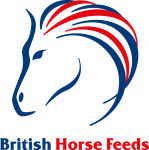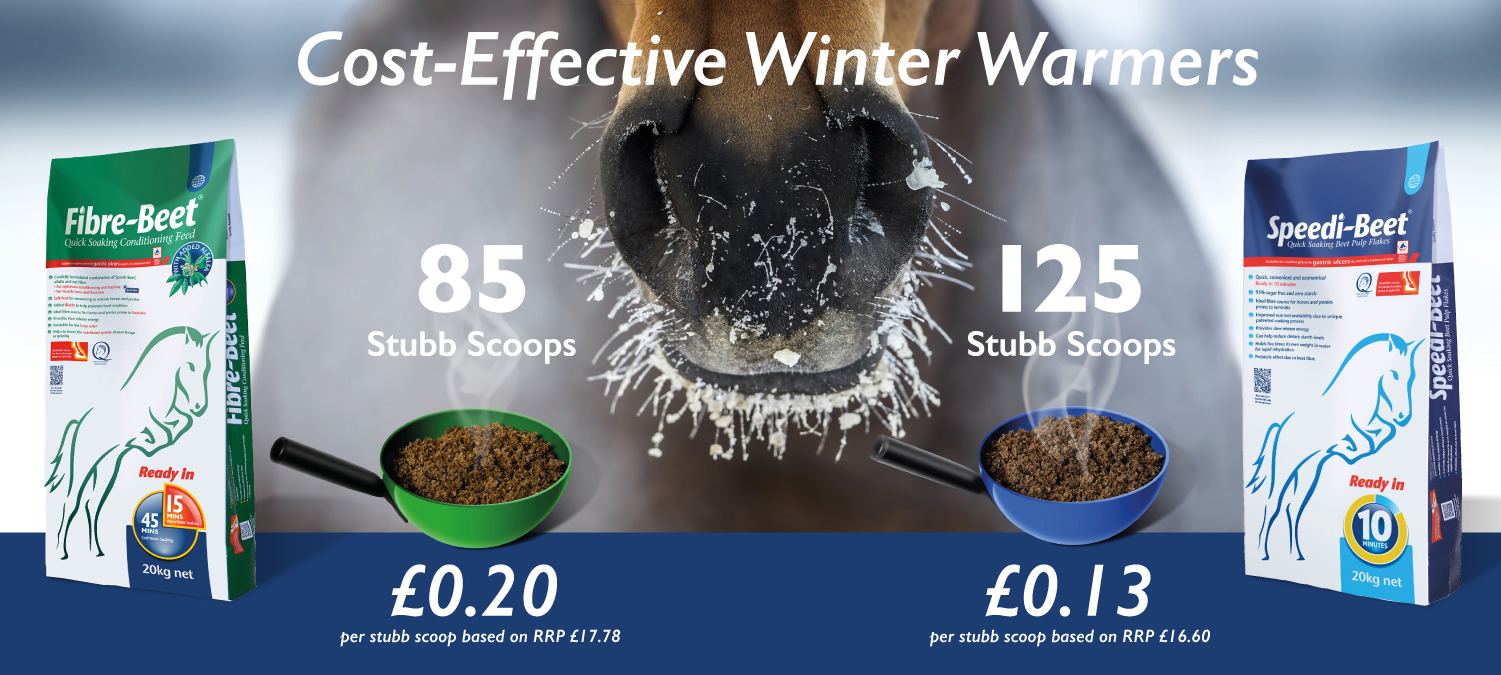Posted: 7th September 2022 | Back to news feed


By Dr Tom Shurlock, Consultant Nutritionist for British Horse Feeds
Winter brings a number of issues around stabling, feeding and keeping your horse warm over winter.
Of these, water management doesn’t seem important. Obviously, there is a full bucket at all times, but perhaps more attention should be paid to water intake.
Hydration
Over winter there is a change in the pattern of forage intake. Hay and haylage intakes tend to be higher and, as moisture content is lower than grass, there is a decline in inherent water intake.
At the same time cold water in a bucket is less appealing, especially on cold days, and so water intake generally is low.
We are also looking at reduced feeding times over the winter period and therefore need to increase moist feed intake over a shorter period, whilst increasing energy intakes to maintain the horse’s body temperature.
Conserving Energy
Even though the horse may be stabled for some or all of the day over winter, and although there will be mild days, extra energy will be needed to keep the horse’s body temperature in what is known as the zone of thermoneutrality.
Thermoneutrality is a band of temperature above and below which the body initiates activity to keep its own core temperature within normal limits. Shivering at the low end and sweating at the high end are both such activities.
It has been calculated that for every 1-degree Celsius drop in temperature a horse needs an extra 2MJ of energy to generate extra heat and, even if stabled or rugged, this can add up to a sizeable load.
For example, a 5-degree Celsius drop in temperature means an extra kilogram of feed or hay needs to be eaten.
However, horses tend to eat less in winter and as a result, we need to improve the energy efficiency of the feed so we aren’t tempted to overfeed. There are factors that impact this and, surprisingly, the temperature of the water bucket is one.
Water intake for a 500kg horse is around 20 litres a day and the effect of warming that to body temperature could be significant. The horse would use a significant amount of energy to warm up the water as it entered their body.
Simply heating the water to a tepid temperature would help conserve the horse’s energy and not only that but encourage the horse to drink making it more palatable.
Fibre fermentation, especially super fibres like Speedi-Beet and Fibre-Beet from British Horse Feeds, goes a long way to supporting body temperature as the heat generated by the fermentation is a bonus to the energy contribution. However, the energy cost of the body warming water may negate this.
How a warming mash can help…
Supplying warm water can be a significant contribution to optimising energy intake. This is a real, but hidden, benefit of a warm mash.
Mashes are a brilliant idea for winter, as they encourage water intake at a time when it is sub-optimal. Mashes also, by having a moist presence, encourage chewing and salivary production and benefit digestion and hind gut fermentation.
Warm mashes also tend to improve palatability and overall intake. They can also help counteract energy/heat loss by negating the need to warm the cold drinking water it replaces.
Warm mashes make the ideal feedstuff of a high moisture feed and improve its energy level by counteracting heat loss associated with cold water. There are lots of factors to consider when designing a diet for your horse.
Feeding Cost-Effectively Through Winter
With the cost of raw materials and feedstuffs rising we are now more than ever looking to feed more cost-effectively through winter.
Feeding on a budget is not the same as feeding the cheapest materials, but ensuring feeding is as cost effective as possible and that we are providing the correct nutrients the horse needs.
Using a soaked mash, such as Speedi-Beet or Fibre-Beet can help the £’s go a lot further due to the expansion of the product.
Speedi-Beet expands to 5x its volume and holds 5 times its weight in water. A 20kg bag can provide approximately 125 scoops of soaked feed.
A 20kg bag of Fibre-Beet provides approximately 85 scoops of soaked feed. When soaked it expands to 3x its volume and holds 3 times its weight in water.
These super fibres (materials whose fibre is more fully utilised than forage fibre) can provide as much energy as cereals, without the need to load the gut with starch too.
Simply by feeding a warm, soaked super fibre, the intake of energy and energy support can readily meet the requirements of the horse in winter and can optimise winter forage.
For more information visit www.britishhorsefeeds.com or contact British Horse Feeds on 01765 680300.
The Equestrian Index newsfeed is compiled from articles submitted by advertising members and expresses the opinions of those members. Watsons Directories Ltd shall not be held liable for any inaccuracies or mis-statements therein.